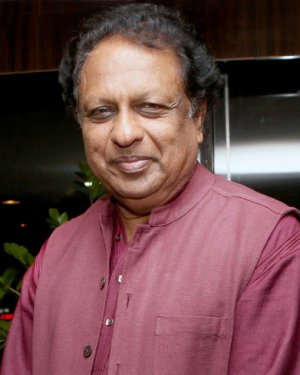
US Dilemma over Venezuela
Fidel Castro’s defiance of the United States for more than fifty years through the Cold War and beyond, even after the then US President Barack Obama’s friendly overtures to Cuba, is the stuff that inspires leftist leaders in Latin America. But all the leaders in Latin America have not succeeded in uniting their country against the US and some of them have fallen by the wayside. In the past, the US has used every opportunity to change unfriendly regimes by various methods. But the present constitutional crisis in Venezuela triggered by violent protests against the incumbent President Nicolas Maduro, which resulted in the emergence of the leader of the opposition, Juan Guaido as Acting President recognized by the US and several other states has become a test case of President Trump’s policy of not meddling in quagmires abroad.
The collapse of the country with a spiralling political, economic and humanitarian crisis, even with its oil wealth, was swift. Tens of thousands have taken to the streets. As many as three million citizens – a 10th of its population – have fled. Almost 90% of those who remain live in poverty. The economy is shrinking fast, while the IMF predicts that hyperinflation could hit 10,000,000% this year. With food and medicine shortages widespread, there has been a surge in levels of malnutrition and the re-emergence of diseases.
Maduro and his allies have maintained a tight grip on power despite the collapse. When the opposition triumphed in elections for the national assembly in 2015, Meduro stripped the body of its powers and set up the National Constituent Assembly instead. Last year he won an allegedly rigged presidential vote boycotted by the opposition. Opposition leaders were jailed or fled into exile; protesters have been arbitrarily arrested and tortured. Maduro claims to continue the work of his charismatic predecessor, Hugo Chávez, but even many followers of Chavez have turned against him.
Guaido, who has declared himself Acting President has the support of President Donald Trump, but so far he has not shown any enthusiasm for military intervention. Maduro has the support of Russia, Turkey, Mexico and China and some others. Russia sent two bombers to Venezuela to demonstrate its support to Maduro. Canada and most regional countries have recognised Guaidó, reflecting the broader risks posed by Venezuela’s current crisis. Some are still undecided like the EU. The Organisation of American States (OAS) has not recognised Meduro’s re-election. Brazil’s new far right president Jair Bolsonaro has made his sympathies for Guaido clear. The line up on both sides is quite formidable.
Regime change through indirect support to the rebel leaders through subversion or military action is the standard prescription for the US in such circumstances, but Trump seems to have ruled out military action, though his National Security Adviser, John Bolton, has been on the warpath against Meduro for some time. Trump has hinted at his having to temper Bolton’s enthusiasm, but denied that he is unhappy at the delay in which things are moving in Venezuela. Trump’s telephone conversation with the Russian President Vladimir Putin covered this issue, but no solution was worked out. Ironically, Trump’s reputation for being a disruptionist has been overtaken by his other policy not to put the US boots on the ground abroad. He has only withdrawn US forces from countries like Syria and Afghanistan so far. Meanwhile, there are frequent reports about movement of the US Navy to the region for any action, should the President decides to use force in a humanitarian intervention. All options are on the table, according to John Bolton. The question being asked in Washington is “Can Trump’s National Security adviser sell the isolationist President on military force?”
The opposition has been calling the military to revolt against Maduro, but some who defected have been dealt with ruthlessly. The question is what comes next. Clearly the opposition’s aim is to encourage the military, particularly lower down the chain of command to defect. The possibility of rival factions in the army turning upon each other is a real risk. A crisis may arise if US diplomats ignore orders to leave the country. The prospect of military intervention is terrifying, and could make the current catastrophe far worse. But “if the Americans were to propose a military intervention I would probably accept it,” Guaido said in an interview with the Italian daily newspaper La Stampa.
It is clear that no solution can be found if Maduro continues in power and Guaido maintains his push to oust him from power. The two sides are fairly balanced both internally and internationally. The general population desires to have negotiations among political parties, leading to fresh elections. But the economic situation, marked by power outages and other critical shortages will eventually pressurise Maduro to compromise. But he has repeatedly declared that he will defy the Americans and protect the sovereignty and integrity of his nation. In Latin America, such declarations have greater emotional appeal than the promise of stability and prosperity. Much depends on how long the US and others will maintain their restraint and allow the internal power struggle to turn one way or another.
